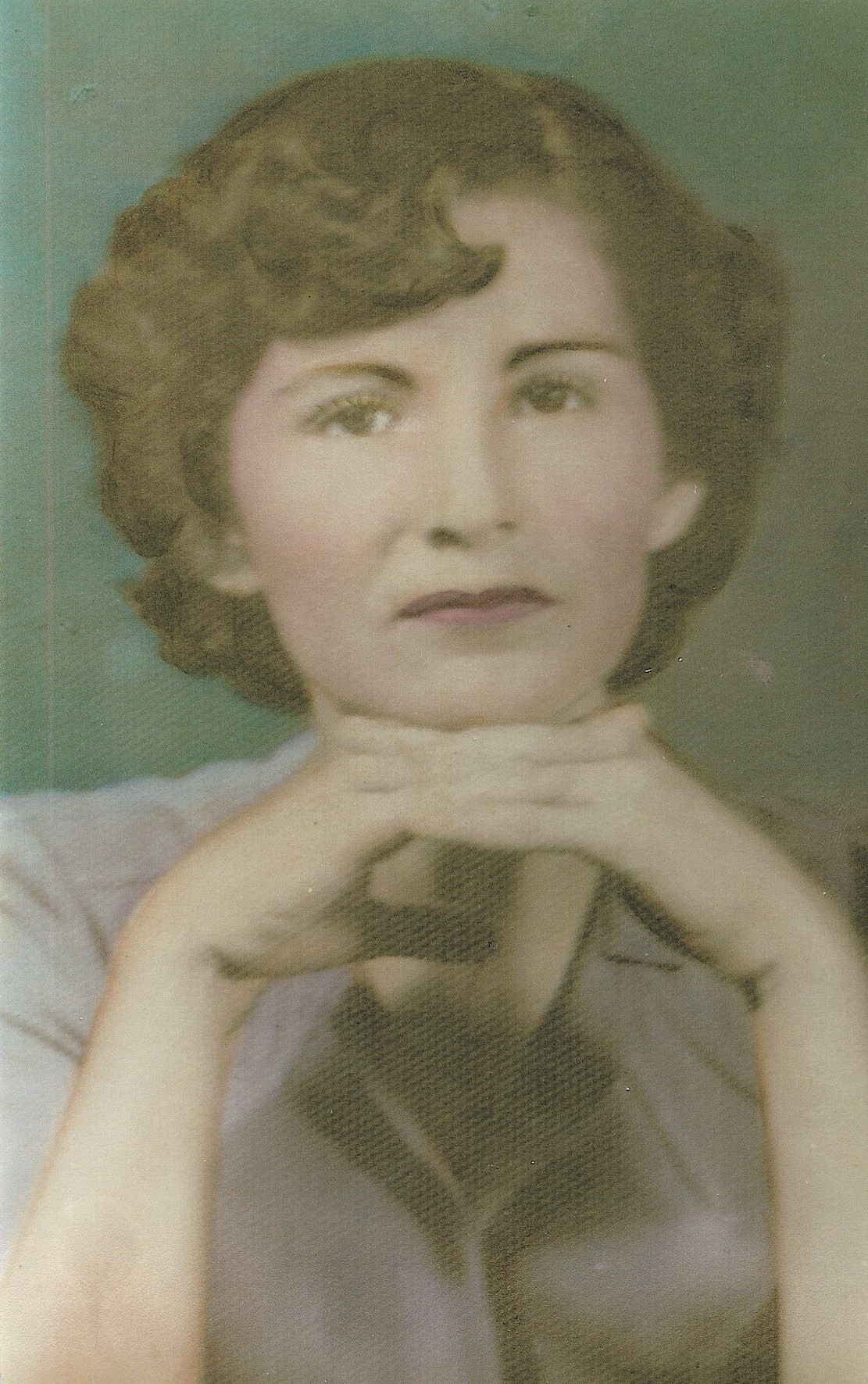TRANSCRIPTION
What are your earliest childhood memories?
"My mother was very mean to me. We never got along. She was always nice to my other brothers and sisters, but not me."
Did you ever meet your father? Who told you who your father was?
"No, what for? I never knew who he was but my mother was married to Nicholas Ortiz and supposedly he is my father. He never came around."
What was your home like as a child?
"It was a small house with just one room. We all slept in there. Our beds were made of corn husks."
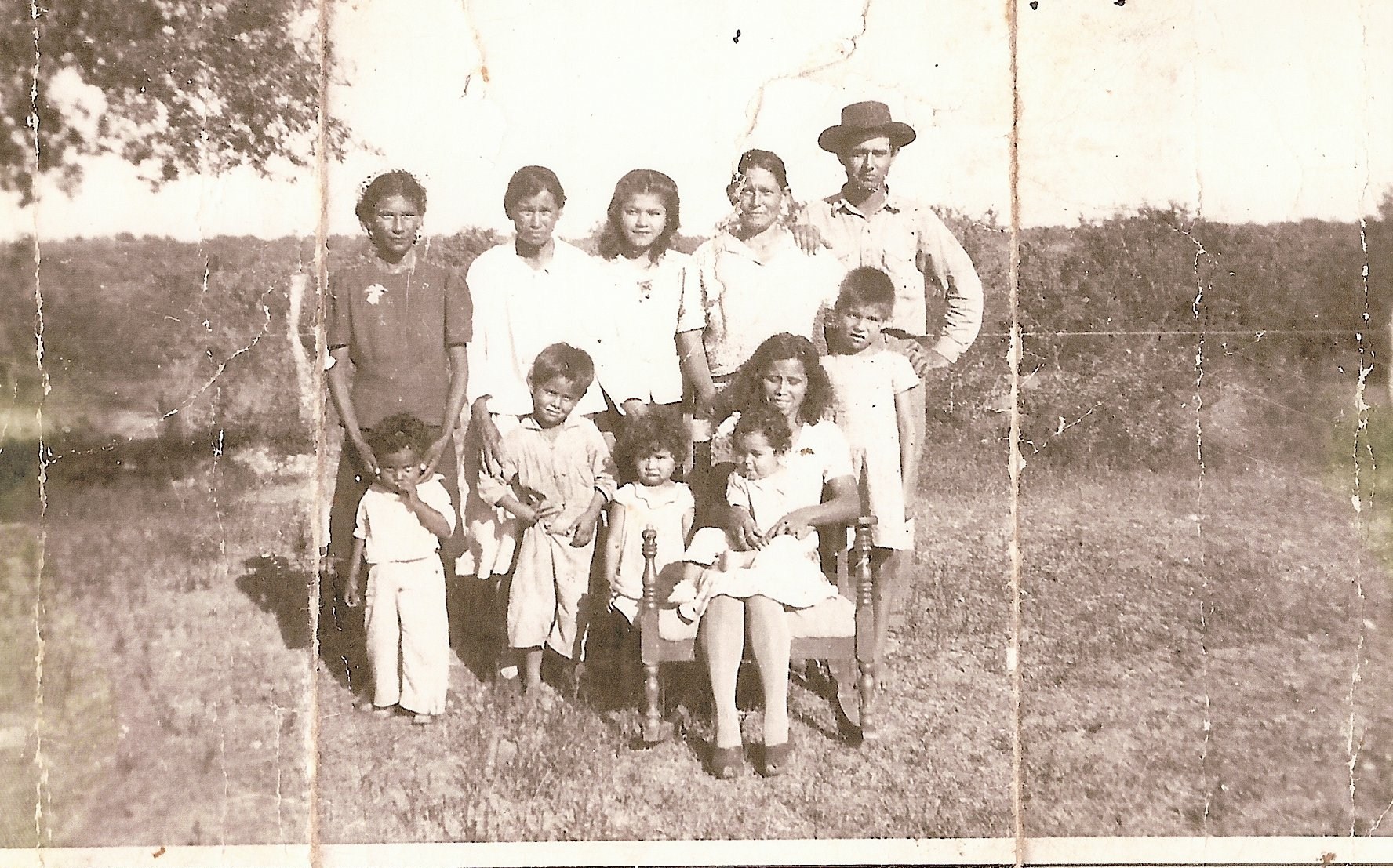
Would you buy or make your own clothes?
"Our clothes would be bought once a year with no shoes and old clothes would be handed down to my other brothers and sisters."
Did your family own a radio?
"We didn't have a radio. We were too poor. We didn't know about the news or what was going on. We never even got newspapers."
When growing up you spoke Spanish. How did you learn to speak English?
"Yes, I spoke Spanish growing up and I learned English on my own by just listening to others."
Who taught you how to cook or did you learn on your own?
"I taught myself how to cook."
What would your family eat and who would do all the hunting?
I would cook rice, beans, cornbread, and potatoes. We would also eat armadillo and chickens. I would kill the armadillo by using a shot gun. My brothers would do all the hunting and I would cook it."
Who were you close to growing up? Why?
"We never really had time for friends. I was sort of close to my sister Ortencia but I really didn't like any of my brothers or sisters because they were all liked by my mother."
Did your family ever celebrate Christmas? Did you get any gifts?
"All we had for Christmas was a Christmas tree with nothing on it. We never got any gifts. Too poor."
If you or any of your siblings got sick, what were some of the remedies your mother used?
"She would use a lot of Mexican remedies. They were herbal and we made them into teas and drinks."
Why weren't you able to go to school? Did you ever want to go to school?
"I had to work on the fields and help babysit and cook. I always wanted to go to school every time I saw the yellow school bus go by. I do know how to write my name and read very little. Your Big Grandpa taught me."
On days off, what would you do for fun? What town would you go to and how would you get there?
"We never had any days off. It was always work, work. We never went to town and had no reason to go. The only thing we had for fun was a festival every year in Nordheim."
The land you and your family worked on was owned by the Lemke Family right? How did they treat you all?
"Yes...we were treated like Negroes. It was very horrible."
What kind of work would you do on the field?
"I would just pick things like cotton and corn. There was only one time when we went to Lubbock to go pick some cotton."
How and where did you meet Big Grandpa?
"We grew up together but we met again at the dancehall in Nordhiem after he came back from the war."
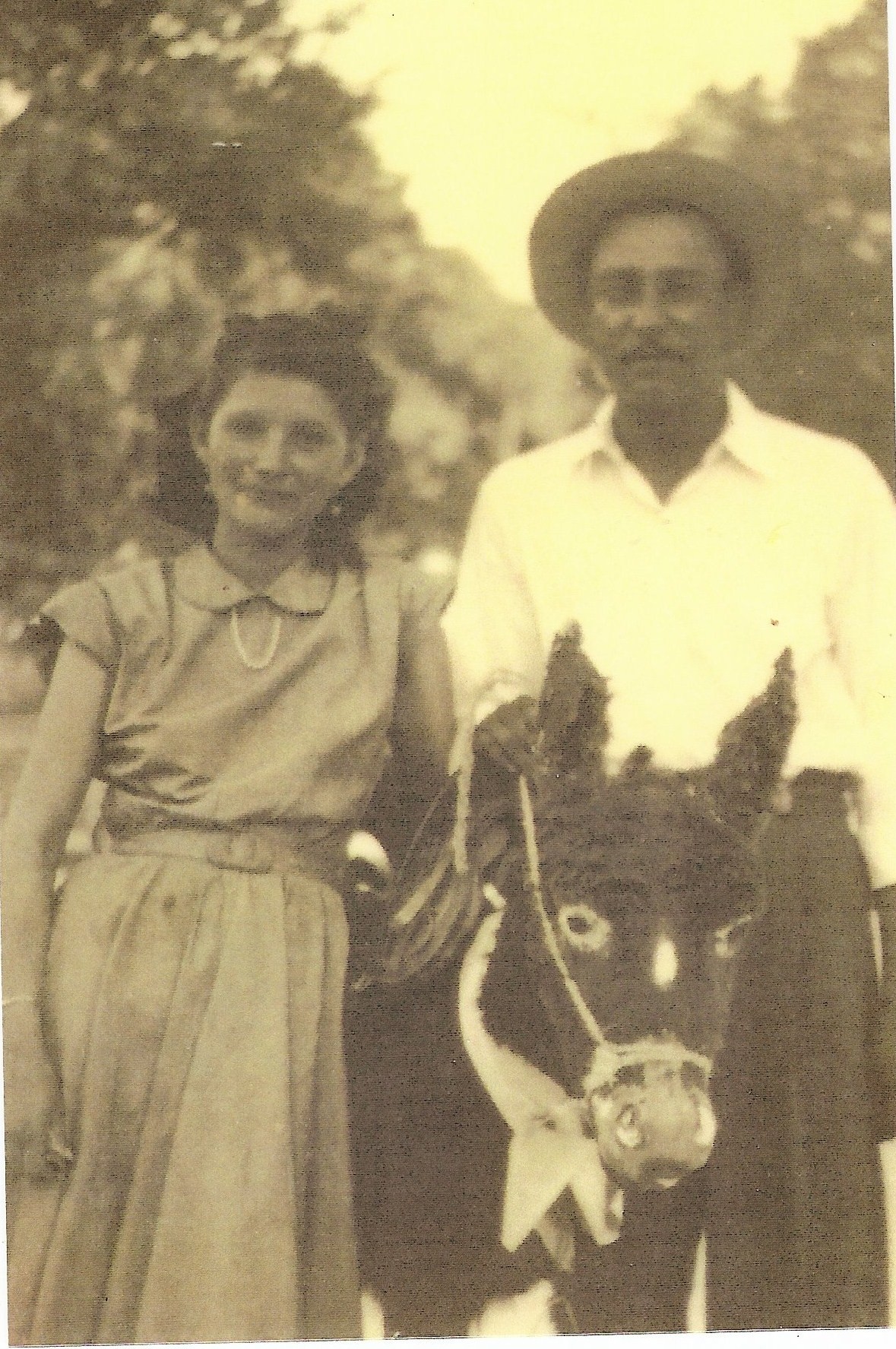
Did Big Grandpa go to school?
"I don't think so, but he knew how to read and write Spanish."
Did Big Grandpa ever talk to you about when he was in the war?
"He did many times but he really didn't like to talk about it."
Where did you and Big Grandpa live when you first moved down to San Antonio?
We lived with my Mother-in-Law for a couple of months. She was the nicest person."
Did you like living in San Antonio? Where was your favorite place to go?
"Not really. We never had any money to go anywhere."
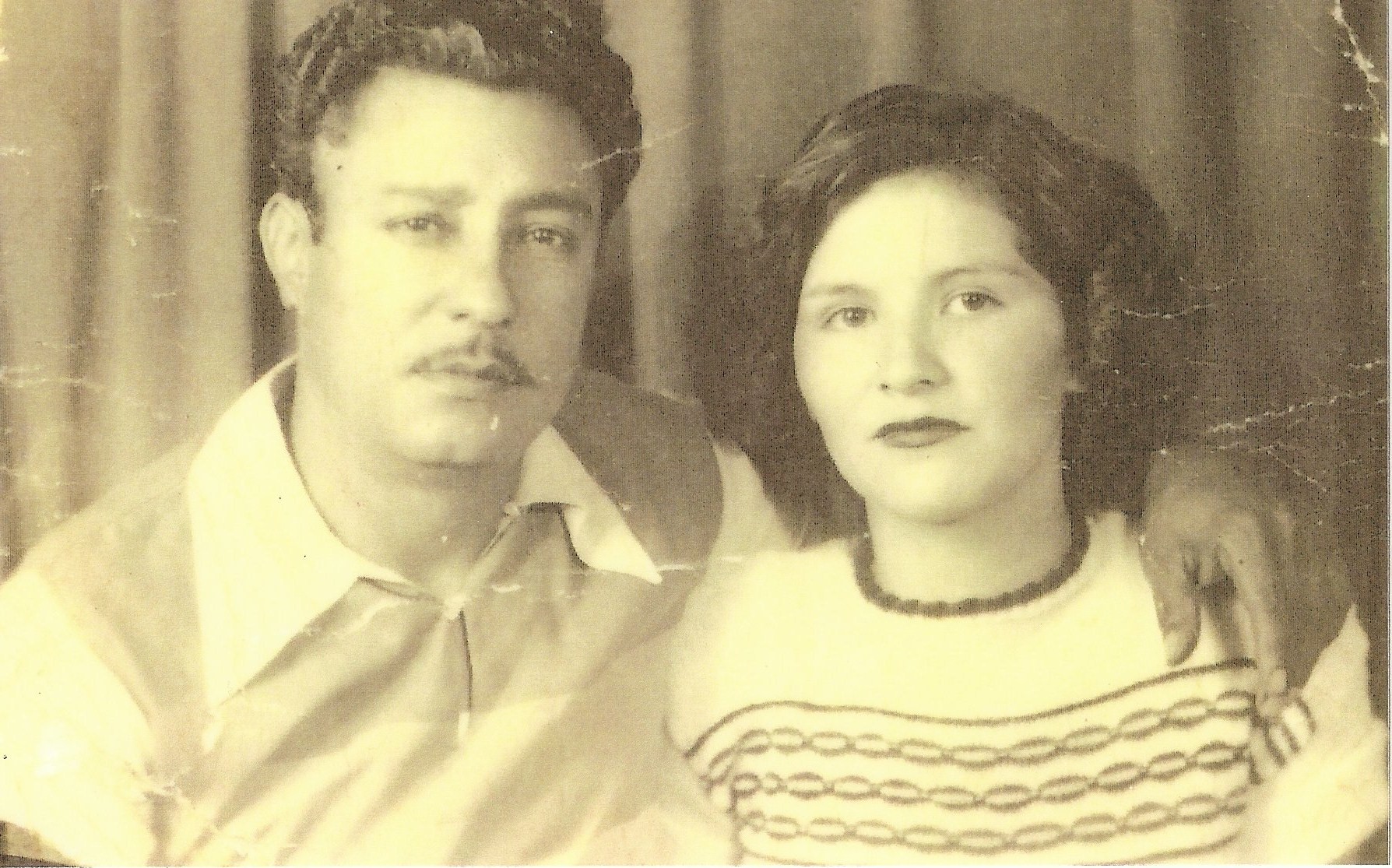
What was your first job in San Antonio? How much did you get paid?
"I was a cook at Garcia's Restaurant. It was a full time job and I got paid $190 a week. Then it went up to $210, heck I should have just stayed there. I was making good money."
What was the first car Big Grandpa and you owned? Did he teach you how to drive it?
"I think it was a Ford Fairlane. I taught myself how to drive by just going up and down the driveway."
You also worked as a Crossing Guard. Did you like it and how much did you get paid?
"Not really because it was either too hot or too cold. I don't remember how much I got paid."
Where you ever able to vote?
"Now I can, but before I couldn't. My first vote was around the sixties."
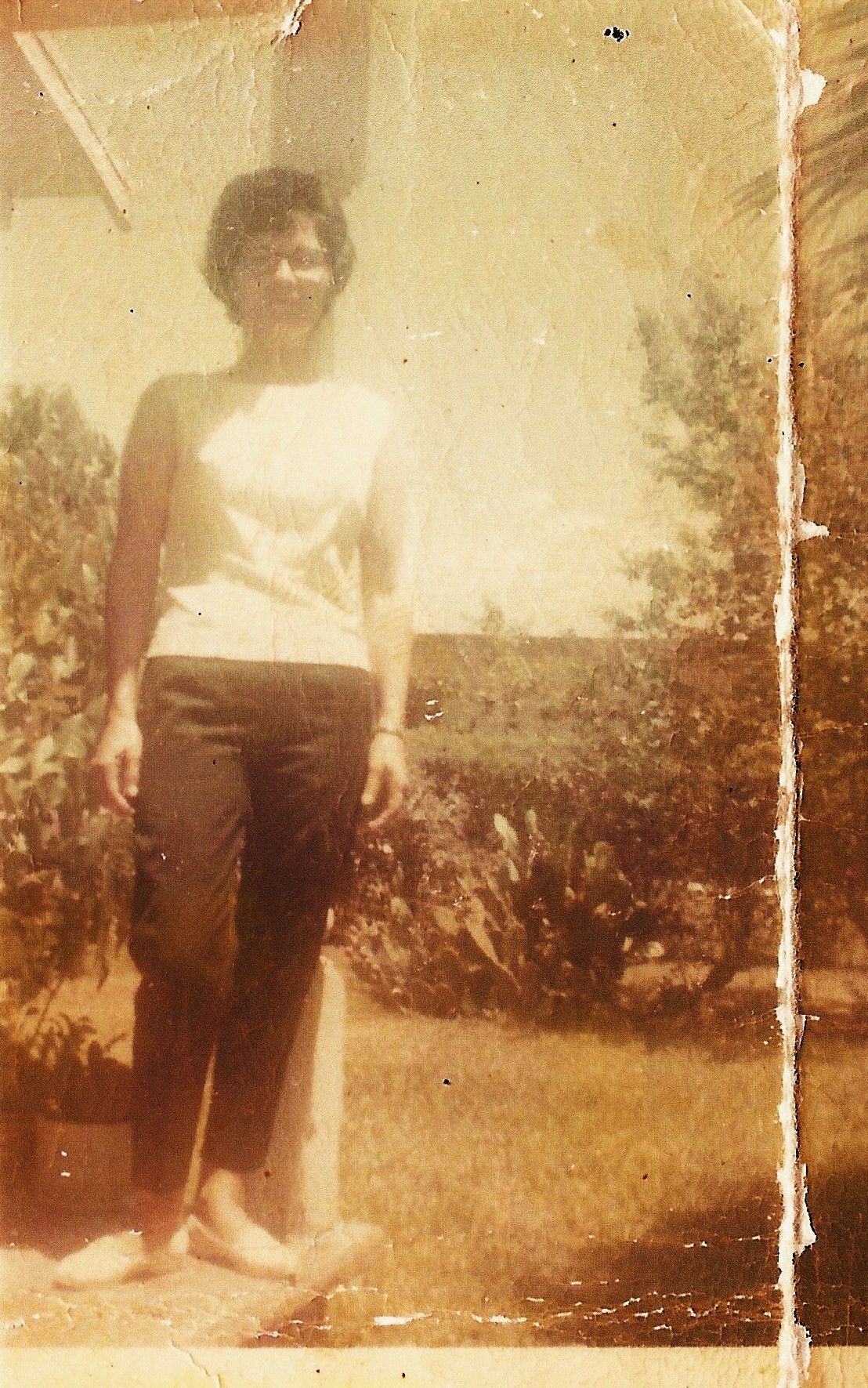
What do you remember about the Vietnam War?
"I was scared because my nephew, Jerry was in the war."
Where you ever afraid that one of your sons might have been drafted?
"Your grandpa couldn't go because he had your dad and the rest were to young to get drafted. Tony later enlisted and I didn't want him to go. He went on his own to go sign up and didn't tell us about it."
If you could go back and change anything in your life, what would you have done differently?
"I would have really liked to go to school. That's the only thing I would have done differently."
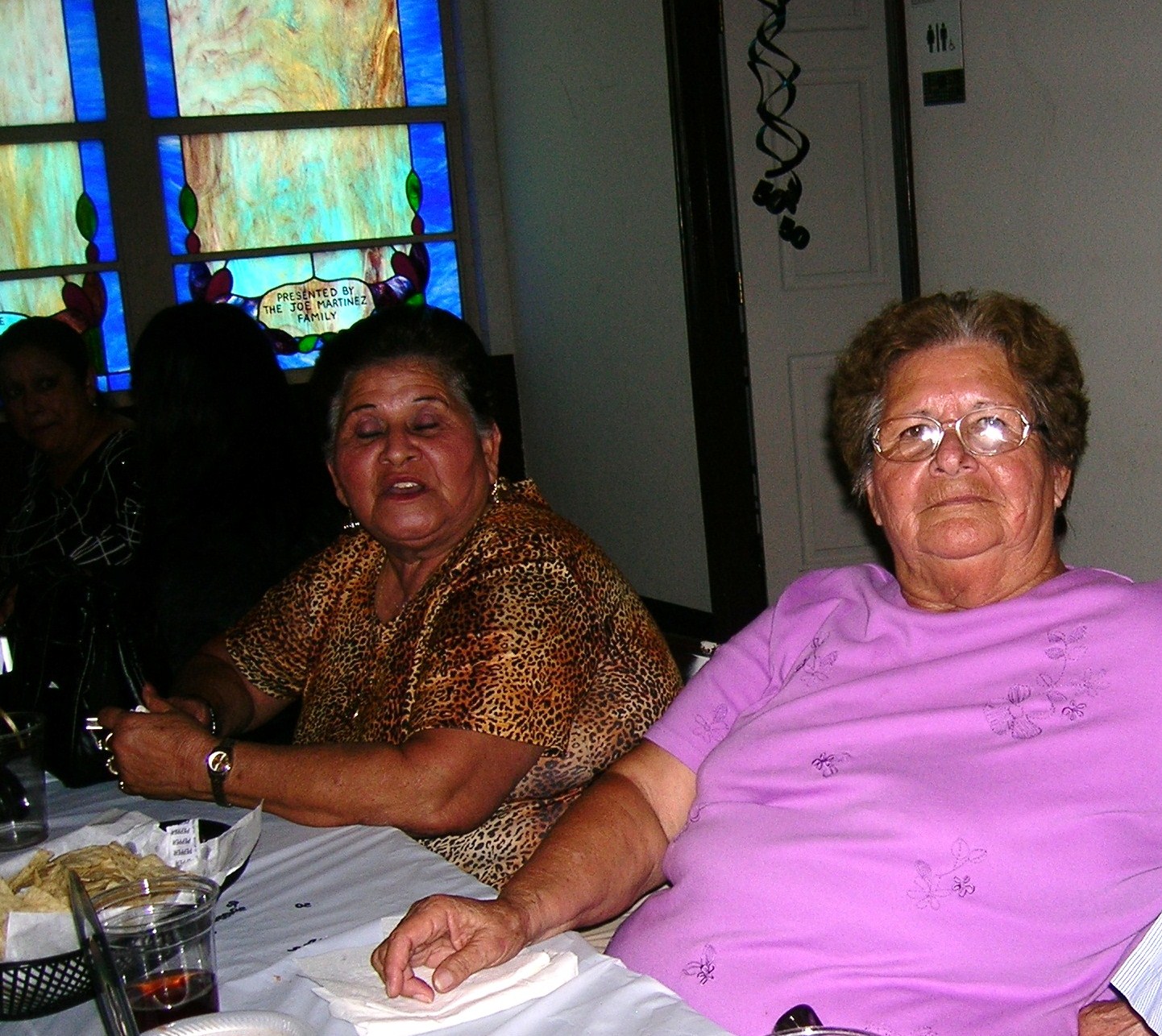
ANALYSIS
My Great-Grandmother is one of the strongest people I have met so far. I have learned through this project that she is tough, frank, honest, and would rather not live in the past. My Great-Grandmother had a very hard life. Many rumors seemed to fly around her families past and they are too painful to remember. I respect her and her emotions and I tried to be careful as to what questions to ask.
Some of the most important points made in this interview is the fact that my Great-Grandmother practically raised herself. Her relationship with her mother was not very strong and she learned almost everything on her own. She began cooking at the age of 8 and learned how to on her own. If she did something wrong, that was the only time her mother interacted. I had really never known that. Another important point is that she never met her father and never wanted to either. The fact that he left knowing his wife was with child was something that she couldn't forgive. My Great-Grandmother shows her emotions very strongly especially when she mentioned that she didn't not get along with her mother. Her voice was very sincere and somewhat saddened by the fact that she was the only one mistreated out of all her siblings. Her stories and others have taught me that in the past, Hispanics were not treated very well and were not seen as superior to other races. Also that being a woman brought on many hardships and My Great-Grandmother and her sisters were often battered and also taken advantage of. Unfortunately, I couldn't verify the rumors that have been told about my Great-Grandmother's past because I knew that it would upset her and I knew that she would immediately turn down the interview. The only drawbacks I had through this project was the fact that there were many questions that I couldn't ask my Great-Grandmother due to her hard past. Other than that, I truly enjoy talking to her because most of the time she says it like it is.
I do believe that this is a great and unique way to learn about the past because these people have seen it and they can describe it in their own words. Though, my family has many untold stories, we all love my Great-Grandmother because she has taught us that even though life may get jagged we can still pick ourselves up and move on.
TIMELINE
- July 15, 1935- Sulema Ortiz is born in Yorktown, TX to Paula Ortiz
- 1943-Begins working in fields and rotates between field work and babysitting.
- August 8, 1950- Gives birth to first child, Berthold Gonzales, in Cuero, TX.
- May 1951- Marries Jesus Hernandez in Nordheim, TX.
- June 1951- Moves to San Antonio
- July 18, 1952- Gives birth to second child, Arthur Hernandez.
- July 1953- Oldest sister, Adella Ortiz, passes away of a heart attack. Buried in Nordheim, TX.
- July 16, 1953- Gives birth to third child, Antonio Hernandez.
- 1953- Fourth sibling, Antonio Hernandez, passes away from being shot by a sheriff.
- September 8, 1958- Gives birth to last child, Daniel Hernandez.
- 1969- Began working as a crossing guard, also known as a "Mama Patrol".
- 1976- Begins working as a cook at Garcia's Restaurant.
- February 2, 1979- Mother, Paula Ortiz, passes away of natural causes. Buried in Nordheim, TX.
- 1981- Went back to work as "Mama Patrol".
- 1991- Oldest brother, Proferio Ortiz, passes away of natural causes. Buried in Nordheim, TX.
- 1993- Sixth sibling, Hortencia Ortiz, passes away of natural causes. Buried in Nordheim, TX.
- July 13, 1995- Death of husband, Jesus Hernandez, due to complications with Diabetes and Cancer.
- October 23, 2008- Interviewed by oldest Great-Grandaughter,Brittany Gonzales.
- Presently-Resides in San Antonio on the Southside and is the Grandmother of 10 Grandchildren and the Great-Grandmother of 20 Great-Grandchildren.
ANNOTATED BIBLIOGRAPHY
- The Handbook of Texas Online
is a multidisciplinary encyclopedia of Texas history, geography, and culture sponsored by the
Texas State Historical Association and the General Libraries at UT-Austin. It was produced
in partnership with the College of Liberal Arts and the General Libraries at the University of
Texas at Austin. Copyright © The Texas State Historical Association.
- http://www.fairlaneclubofamerica.com/ This site is dedicated to restoring and providing information about the Ford Fairlanes. There are many pictures and also information as to how this car came to be and where they can be bought.Copyright © 2008 - All Rights Reserved 340 Clicktown Rd. Church Hill , TN
- http://www.southcentraltexas.net/images/NordheimHall.JPG - This site provides information on many attractions in South Texas. This picture is of the only Dancehall in Nordheim, Tx and is the site where my Great-Grandparents met to later become married.
- http://www.rice.edu/projects/HispanicHealth/Courses/mod7/mod7.html This site tells of the many remedies Mexicans that lived in the southern parts of the United States, used to cure a multitude of sicknesses. Contributed by Nancy Neff, M.D., Assistant Professor, Department of Community Medicine, Baylor College of Medicine.
- http://pics2.city-data.com/city/maps6/clt5855.png This site provides basic information on cities. This picture is the a map of where Nordheim is located and up the road is Yorktown, Tx.
Return to Oral History Projects
